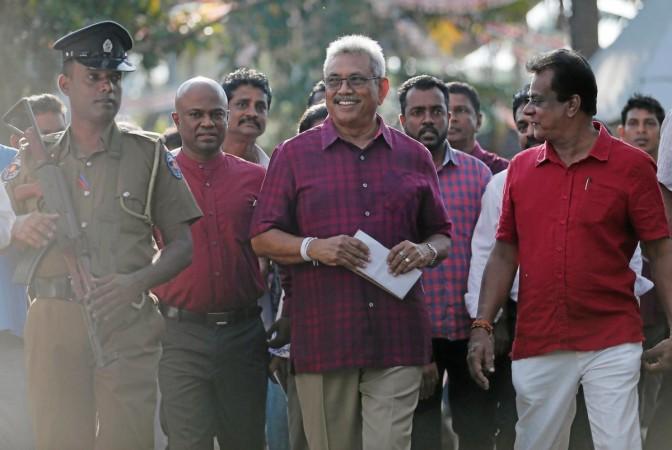
Sri Lanka's former wartime defence chief Gotabaya Rajapaksa was set to become president after his main rival conceded defeat on Sunday in an election that came months after bombings by Islamist militants threw the country into turmoil.
Rajapaksa, who oversaw the military defeat of Tamil separatists under his brother and then president Mahinda Rajapaksa 10 years ago, has promised strong leadership to secure the island of 22 million people, the majority of whom are Sinhalese Buddhists.
With half the votes counted from Saturday's election, Rajapaksa led with 50.7 percent, while his main rival Sajith Premadasa had 43.8 percent, the election commission said. Rajapaksa's party claimed victory.
Premadasa, a housing minister in the current government that has faced criticism for failing to protect Sri Lankans in the wake of the suicide bombings in April, conceded defeat.
"At the conclusion of a hard fought and spirited election campaign, It is my privilege to honour the decision of the people and congratulate Mr. Gotabaya Rajapaksa on his election as the seventh President of Sri Lanka," Premadasa said.
Millions voted to elect a new president to lead the country out of its deepest economic slump in over 15 years, dragged down by its tourism sector following the bombings.
Opposition to Rajapaksa
Rajapaksa would be the latest nationalist leader swept to power across the world, tapping into anger and fears of majority communities.
His victory margin showed huge support in the Sinhalese-dominated southern part of the island as well as postal ballots.
Premadasa, who campaigned on policies to help the poor, led in the north and east where minority Tamils are predominant.
The election commission has said it expects results to be clear by late Sunday and a new president will be sworn in within a day.
Tamil political parties are strongly opposed to Rajapaksa who has faced allegations of widespread human rights violations of civilians in the final stages of the war against the separatists in 2009.
Rajapaksa and his brother deny the allegations.
Muslims, the other large minority group, say they too have faced hostility since the April attacks on hotels and churches in which more than 250 people were killed. Islamic State claimed responsibility.















